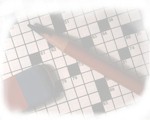| 
MUSIC
The Piano (part 1)
Prior to the piano there was the clavichord and then the harpsichord. The harpsichord
was not able to play both loudly and softly. Around 1700, Bartolomeo Cristofori developed
the pianoforte. The name pianoforte means soft-loud. Cristofori was an employee of the
Medici court in Florence where he was responsible for the maintenance of their collection
of instruments. He sought to create an instrument that, unlike the harpsichord, could play
loudly and softly depending on the touch of the performer. Cristofori's early piano was
surprisingly sophisticated, including an "escapement" that prevented the hammers
from bouncing back and hitting the string more than once.
Bartolomeo Cristofori's piano never really caught on. It was a great idea though, and in
the mid 1700's the idea was used by a German instrument maker named Gottfried Silbermann.
In 1747, J. S. Bach actually tried Silbermann's pianos. He reportedly was impressed, but
he continued to compose for the harpsichord.
Following Gottfried Silbermann, many different makers began creating their
own versions of the instrument. Each maker designed their own version of the piano's
action, and there were significant differences among the instruments. The primary builders
were the Stein family in Vienna, and the Broadwoods in London. In the early 19th century,
the French builder, Sebastien Erard modified the action to allow for quick repetition of
the same note. It was around this time that the piano makers began using metal bracing for
the strings. The instrument quickly increased in size, weight and sonority due to new
technical expertise, and the "modern" piano was almost fully developed by the
mid-19th century.
The piano is a extremely versatile instrument. Unlike most other instruments which can
only play one note at a time, the piano is capable of playing many notes simultaneously.
Most other instruments require some kind of accompaniment, or generally play as part of an
ensemble, but the piano's ample tone and ability to play melody and harmony simultaneously
have made it the most popular solo instrument.
Sources: Encyclopedia Britanica
Make a joyful noise unto the LORD, all ye lands. Serve the LORD with gladness: come before
his presence with singing.
Psalm 100:1-21
|
|





